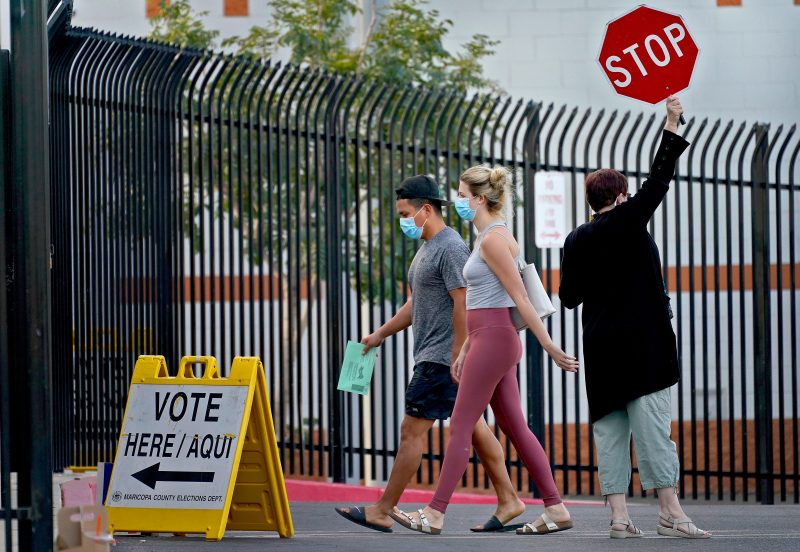In a time where the integrity of elections is being questioned and voting rights are under attack, one unexpected consequence has arisen – the decision by schools in Arizona to discontinue the use of their facilities as polling locations. This move comes as a response to concerns about potential security threats and disruptions to the educational environment. While the safety of students and faculty is of utmost importance, this decision also raises broader questions about the role of schools in our democratic process.
Historically, schools have often served as convenient and accessible polling locations for local elections, providing a familiar and community-centered venue for voters. However, the increasing polarization in American politics has led to heightened security concerns at polling sites, prompting some schools to reevaluate their participation in the electoral process. The decision to opt out of serving as polling locations in Arizona is a reflection of these broader societal tensions.
On one hand, the move by schools to distance themselves from the electoral process can be seen as a necessary step to ensure the safety of students and staff. Schools are inherently sensitive environments, and any potential threat, whether real or perceived, must be taken seriously. By choosing not to host polling activities, schools are prioritizing the well-being and security of their community members, which is commendable in an era marked by increasing instances of violence and conflict.
However, on the other hand, the decision to discontinue the use of schools as polling locations raises concerns about the implications for voter access and participation. Accessible polling sites are essential for ensuring that all eligible voters have the opportunity to cast their ballots without facing unnecessary obstacles. By eliminating schools as potential polling locations, there is a risk of creating further barriers to voter participation, particularly for those who rely on easily accessible venues to exercise their democratic rights.
Moreover, the withdrawal of schools from the electoral process highlights the broader challenge of protecting and upholding the integrity of our democratic institutions. As attacks on voting rights and attempts to undermine the electoral process continue to pose a threat to the very foundation of our democracy, it is essential that we actively work to safeguard and strengthen these institutions. While the decision by schools in Arizona may be a practical response to security concerns, it also underscores the need for a more comprehensive and inclusive approach to protecting our democratic values.
Ultimately, the decision by Arizona schools to no longer serve as polling locations is a complex issue that reflects the challenges facing our society at large. While prioritizing safety is crucial, it is equally important to consider the implications for voter access and participation. As we navigate these turbulent times, it is essential that we remain vigilant in defending the principles of democracy and working towards a system that is fair, inclusive, and resilient in the face of adversity.



























